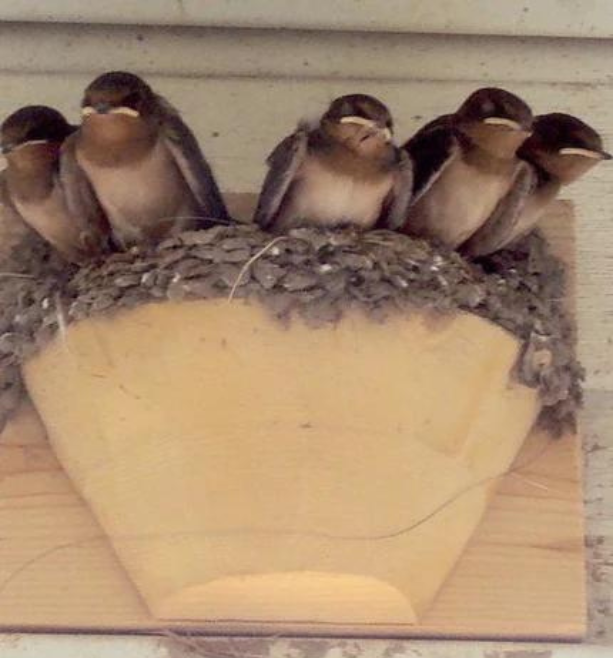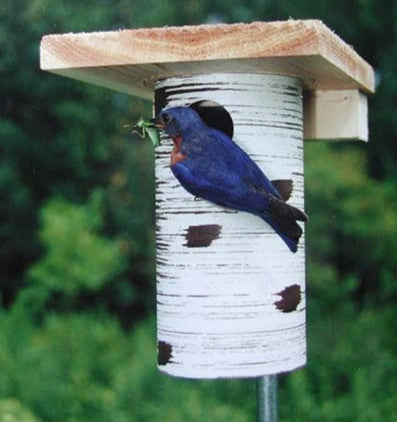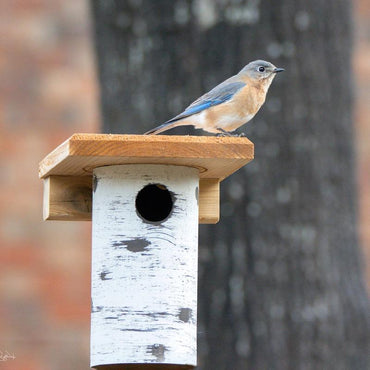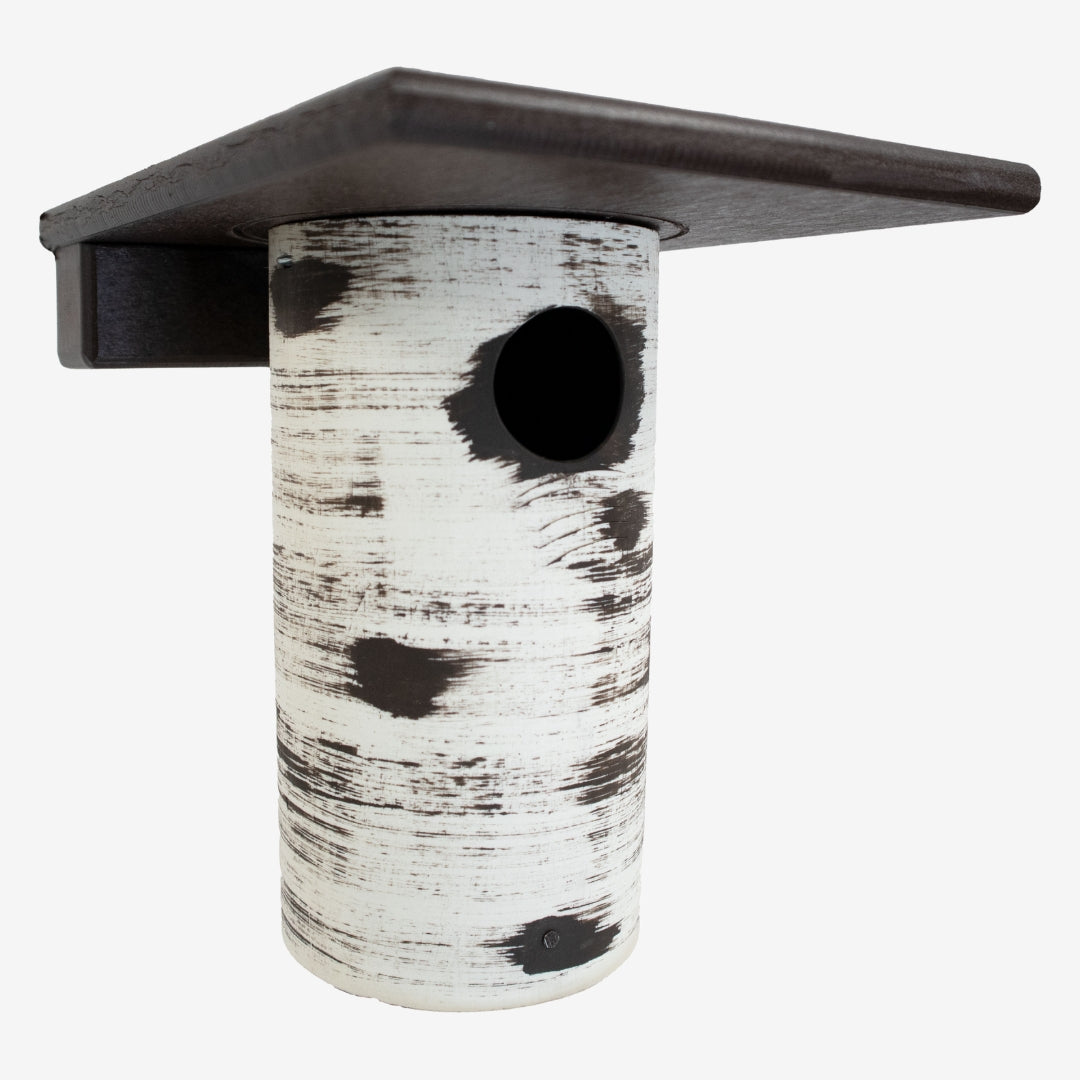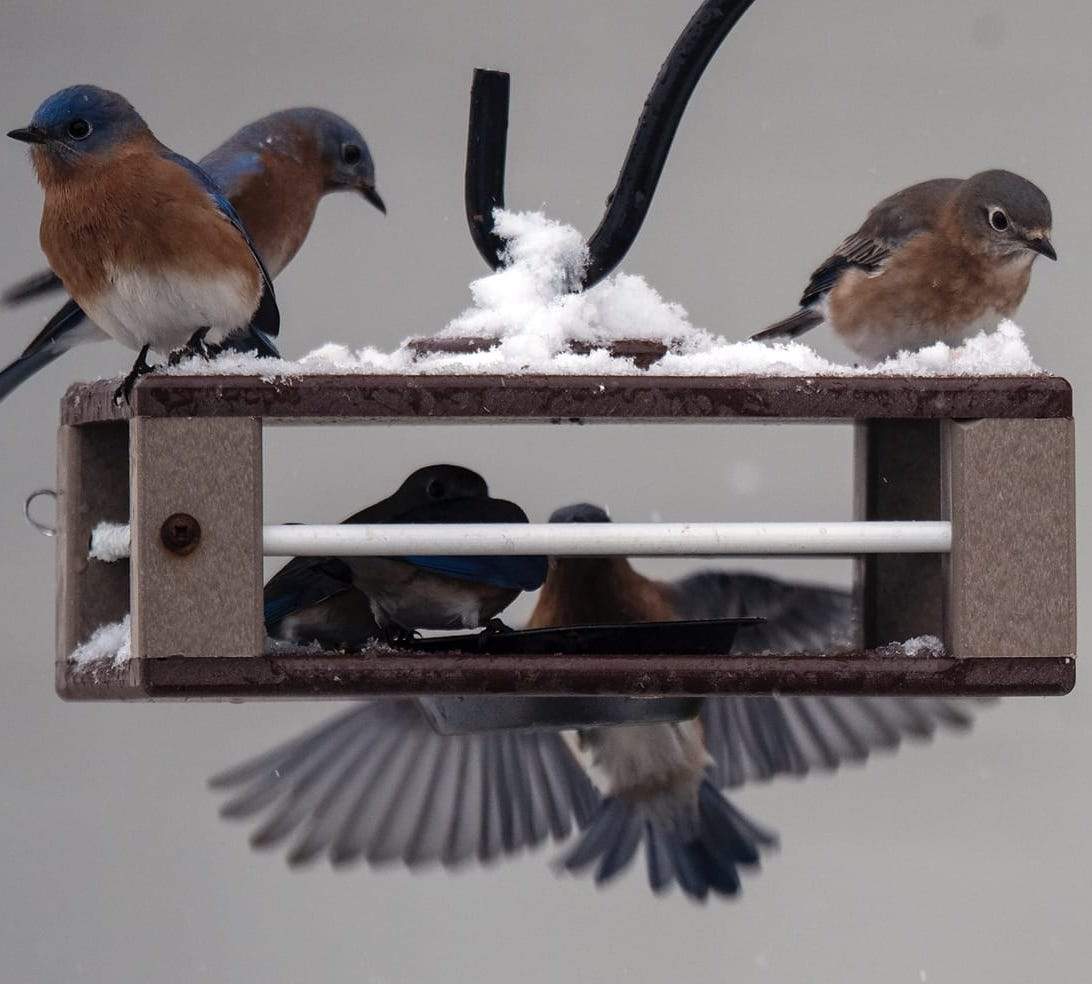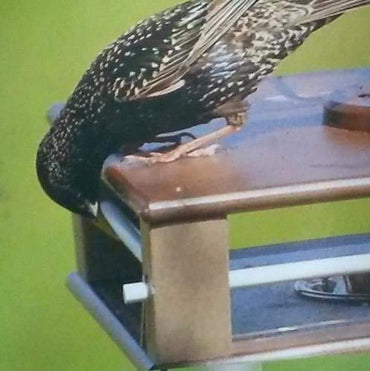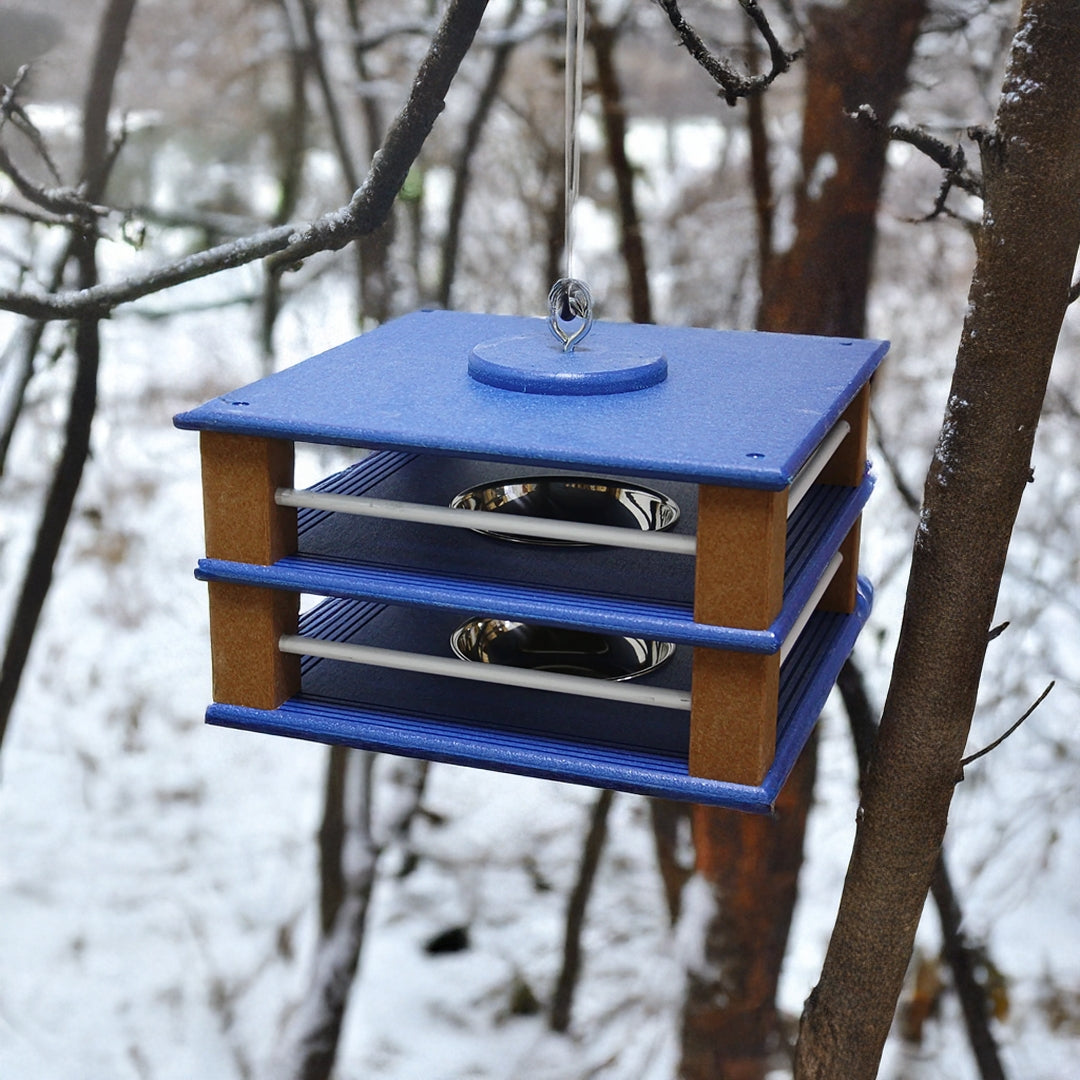Locate Wildlife Rehabilitators and answers for emergency baby bird care.
Helping Sick or Injured Songbirds from Mount Vernon Songbird Sanctuary (has recently closed). Please check link above at Sialis for current rehabbers list. Some local veterinarians may also take in sick/injured birds.
Orphaned Songbirds
 Are they truly orphaned? Observe a nest for 2 hours before rescuing. When watching a nest, remember the adults can fly in, feed the young and be gone in seconds.
Are they truly orphaned? Observe a nest for 2 hours before rescuing. When watching a nest, remember the adults can fly in, feed the young and be gone in seconds.
If a nest has fallen down, a new nest can be made from dry grasses and placed in a shallow wicker basket (to allow rain to pass through), secured as close as possible to the original site, otherwise the adults will not return if the nest is placed in a different tree or shrub.
If you have found nestlings that have fallen down, with little or no feathering, a lot of pink skin showing (see nestling bluebirds on right), they can be returned to the nest. It is an old wives' tale that if you touch baby birds, the parents will not come back! If the nestlings are cold they must be warmed first.
An obviously young feathered bird with a short wings and tail, found on the ground is probably a fledgling. Most songbirds fledge (leave the nest) before they can fly well and end up on the ground. As long as there are no apparent injuries, the wings look even and the bird is using both legs, the bird should not be rescued.
The parents will be away gathering food so you may not see them. If the young bird is calling loudly and often with no parent responding, it may be orphaned. Watch from inside the house or car so as not to frighten off parents. Observe for 2 hours before rescuing.
Unfeathered nestlings will need an artificial nest (small bowl lined with tissue) and need to be kept warm with a heating pad. If it is a fledgling, place in ventilated shoe box lined with a towel, keep warm. Do not put anything in their mouths or in the container. If a baby is fed improperly, or given fluids, death could result.
Sick Songbirds
 A sick bird is usually found on the ground, in the same position for long periods of time, quite often near a bird feeder or bath. The bird may have a puffy appearance (feathers very fluffy), eyes could be red and swollen or kept closed, like this American Goldfinch (right) and you can get very close to the bird before it moves away.
A sick bird is usually found on the ground, in the same position for long periods of time, quite often near a bird feeder or bath. The bird may have a puffy appearance (feathers very fluffy), eyes could be red and swollen or kept closed, like this American Goldfinch (right) and you can get very close to the bird before it moves away.
There are many treatable conditions that could cause these symptoms and every effort should be made to catch the bird. Use a barrier to trap the bird, or lure it into a garage or porch with food, or throw a towel over it.
Once captured, the bird should be placed in a ventilated box lined with a towel and kept warm, away from people and pets. Do not put anything in the bird's mouth or in the container.
Injured Songbirds
 Broken wings, as is the case with the scarlet tanager (right) or broken legs, wounds, head trauma and spinal trauma. Check both wings. Are they positioned evenly, or is one wing drooping lower than the other indicating an injury? Is a bird standing on both legs or is one leg held up because the bird cannot bear weight on it, or is it dangling uselessly?
Broken wings, as is the case with the scarlet tanager (right) or broken legs, wounds, head trauma and spinal trauma. Check both wings. Are they positioned evenly, or is one wing drooping lower than the other indicating an injury? Is a bird standing on both legs or is one leg held up because the bird cannot bear weight on it, or is it dangling uselessly?
Both may indicate a break. Missing or matted areas of feathers are signs of a wound, the result of being caught by a cat or similar. Cat bites can be fatal if not treated with antibiotics. (Any bird that has been handled by a cat should be rescued).
Head and spinal trauma can be caused by colliding with a window or being hit by a car, resulting in a bird being found on the ground stunned and unable to fly, or use its legs. All of these situations are very serious; the bird should be rescued immediately, placed in a ventilated box with a towel, and kept warm, away from people and pets. Do not put anything in the birds mouth or container.
If You Have a Question, Phone (860) 276-8433
Summer hours for the clinic are 8:00 a.m. until 6:00 p.m. Tuesday thru Saturday. Messages left during those hours will be returned that day, or on Tuesday if left on Sunday or Monday. Messages left after hours will be returned in the morning. In the event the clinic is closed it will be noted on the answering machine, with further instructions.
E-mail will be checked once a day Monday thru Friday. Due to the fact that e-mail is not constantly checked please don't e-mail questions about a bird that is in current need of care, call the clinic and your call will be returned.


